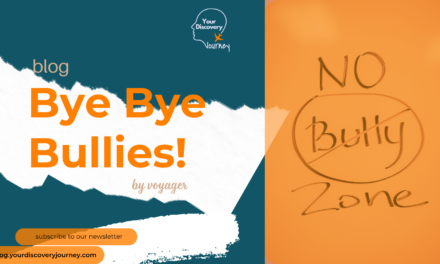
You want your teenage independence, first learning responsibility and building trust with parents is the most important.
Rule #1 : If there is no trust, there is only doubt!
Teenage years – a time of growing independence, newfound freedoms, and the ever-present battle cry: “I can do it myself!”
But let’s be honest, navigating this quest for independence can feel like a delicate tightrope walk between wanting more freedom and keeping the trust of your parents. Fear not, fellow tightrope walkers!
This blog post will equip you with yourdiscoveryjourney™ you get – to learn how to communicate effectively with your parents, demonstrate responsibility, and build a foundation of trust. After which, you will find it easier to receive what you are asking for.
So, grab your metaphorical balancing pole (because navigating teenage independence can feel a bit wobbly sometimes!), and get ready to have productive conversations with your folks.
Decoding the Disconnect: Using Meta Model Questions
The Meta Model helps you understand the underlying meaning behind your parents’ words and assumptions.
Here’s how to use it to bridge the communication gap:
- Meta Model Questions: Ask clarifying questions to get to the root of their concerns. For example, if your parent says, “You’re never responsible,” you could ask, “What specific behavior makes you feel I’m not responsible?” This can help clear up misunderstandings.
- Deletion: Sometimes messages seem incomplete. For example, your parent might say, “You can’t go to that party.” Why not? Ask for more information to understand their reasoning.
- Modal Operators: Words like “should,” “must,” and “can’t” can indicate limitations. Ask questions like, “What would happen if I did go to the party?” to explore the possibilities and find common ground.
Framing the Outcome: Focusing on Positive Solutions
Outcome framing technique helps you shift the focus from the problem to the desired outcome.
Here’s how to use it to build trust with your parents:
- Focus on Solutions: Instead of arguing about limitations, suggest solutions that demonstrate your responsibility. For example, “I understand you’re worried about the party. If I let you know what time I’ll be home and who I’m going with, would you feel more comfortable?”
- Future-Oriented Language: Use language that focuses on the future and taking responsibility. For example, “I want to earn your trust by showing you I can be responsible.”
- Positive Outcomes: Frame the conversation around the positive outcomes of increased trust and independence. For example, “The more responsible I am, the more freedom you can feel comfortable giving me.”
Building Trust: Beyond The Techniques
Here are some additional tips for building trust with your parents:
- Open Communication: Practice open and honest communication, even when it’s difficult. Talk to your parents about your plans and concerns.
- Follow Through on Commitments: If you say you’ll do something, do it! Following through on commitments builds trust and demonstrates responsibility.
- Take Initiative: Don’t wait for your parents to ask you to do your chores. Take initiative and show them you’re responsible without being prompted.
- Negotiate Responsibilities: Work with your parents to negotiate a level of independence that feels fair and responsible for both of you.
Conclusion: You and Your Parents: A Team in Progress
The teenage quest for independence is a natural part of growing up. By using these techniques, communicating openly, and demonstrating responsibility, you can build trust with your parents and create a foundation for a healthy and supportive relationship.
Remember, you and your parents are a team, even if it feels like you’re on opposing sides sometimes.
Work together, navigate the tightrope of independence with open communication, and you’ll both reach the other side feeling stronger and closer. I think more importantly, find out their expectations of you and let them know whether you can meet them.
Remember, trust is built and a privilege not given as an entitlement.
If you do like what we are putting down in these blog posts, you get to read more of them here.
And if you really do like what you have read and would like to learn more about what we do here at yourdiscoveryjourney™ or join our public program for teen training and coaching with our Rise&Shine© program.












